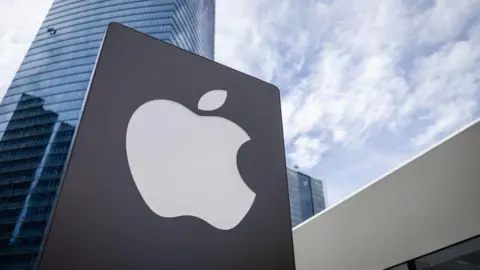The ongoing legal tussle between Apple and the UK government regarding data privacy has taken a significant turn as a tribunal has ruled against the Home Office’s attempts to keep the specifics of the case secret. The ramifications of this decision are poised to impact not just Apple but also the broader dialogue surrounding data security and privacy rights on a global scale.
The backdrop to this legal confrontation stems from the UK government’s desire to obtain access to encrypted information secured by Apple’s Advanced Data Protection (ADP) system. This initiative falls under the purview of the Investigatory Powers Act, which purportedly gives the government the authority to access certain data for national security purposes. However, Apple currently lacks the means to grant such access; only the end users can unlock the encryption on their data. In light of this, Apple has vehemently opposed any efforts to introduce what it deems a “backdoor” into the ADP framework, cautioning that such a measure could have dire consequences, making sensitive data more vulnerable to misuse by malicious entities.
The controversy has attracted intense scrutiny from various quarters, notably privacy advocates and several lawmakers in the United States. Critics of the government’s position argue vehemently against undermining existing privacy protections, fearing that it could set a dangerous precedent for digital liberties. As the situation unfolded, Apple made the decision to withdraw ADP from the UK in February and subsequently initiated legal proceedings against the government in March. This ongoing case is now being deliberated in the Investigatory Powers Tribunal, an entity assigned to oversee matters related to the legality of surveillance practices.
In its latest ruling courtesy of the tribunal, judges dismissed the Home Office’s claims that revealing the case’s details could jeopardize national security. They pointed out that the legal principle of open justice necessitated transparency in such significant legal proceedings. The tribunal strongly articulated that conducting a hearing in strict secrecy without any public acknowledgment would be unprecedented and contrary to established judicial norms. They stated in their ruling, “For the reasons that are set out in our private judgement, we do not accept that the revelation of the bare details of the case would be damaging to the public interest or prejudicial to national security.” These judges underscored the importance of allowing the public to be informed about legal processes that involve fundamental rights and public interest.
The reaction to the tribunal’s ruling has been overwhelmingly positive among civil liberties groups advocating for digital rights. Jim Killock, the executive director of Open Rights Group, articulated that the implications of this judgement extend far beyond the Apple-UK confrontation, affecting privacy and security for millions of individuals globally. He comments, “This is bigger than the UK and Apple.”
Additionally, Rebecca Vincent, interim director of Big Brother Watch, emphasized that the judgement counteracts the pervasive secrecy that often shrouds proceedings in the Investigatory Powers Tribunal. Vincent stressed that the Home Office’s attempts to require Apple to effectively compromise encryption represent a fundamental assault on the privacy rights of millions of British citizens who rely on Apple’s technologies for secure communication.
As the legal battle continues, the outcome will likely serve as a pivotal moment in the discourse around data privacy laws, encryption technology, and government surveillance capabilities, proving crucial in determining how far governments can go in accessing digital information residing on private servers. The decision reinforces a growing demand for transparency in the intersection of technology and government overreach, pushing the conversation into the broader spectrum of civil rights in the digital age.










